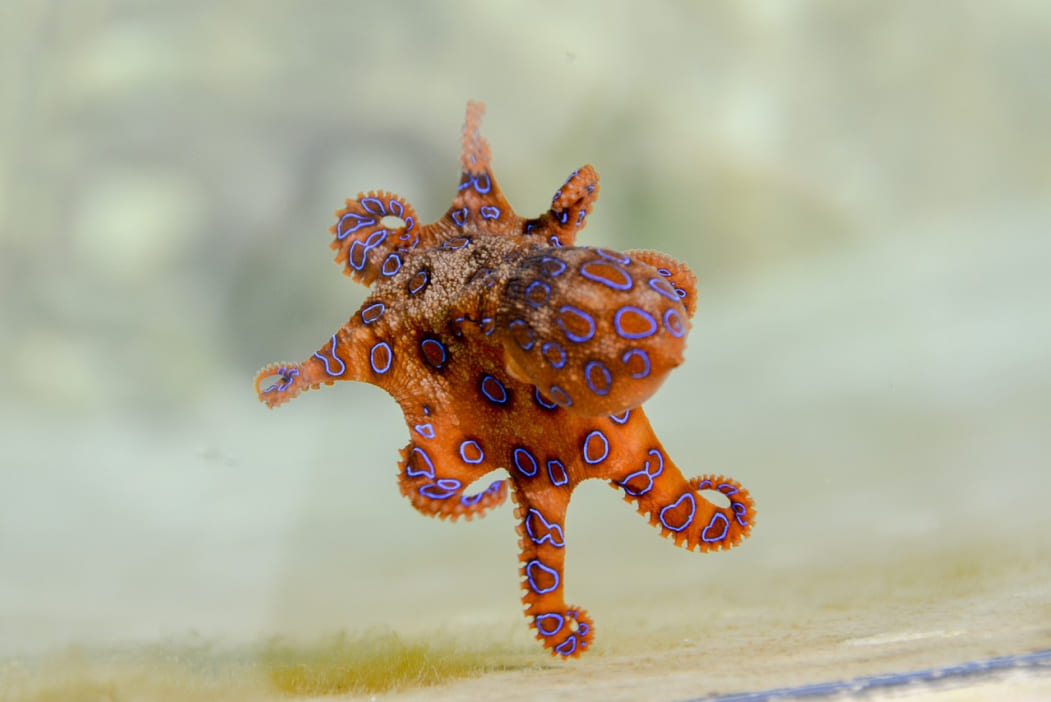Marine Animal Protection

Blue-Ringed Octopus
The blue-ringed octopus is one of the ocean's most beautiful yet deadly creatures. Recognizable by its vibrant blue rings, this small octopus packs a venomous bite that can be fatal to predators and even humans. Despite its fearsome reputation, the blue-ringed octopus is a shy and reclusive creature, spending much of its time hiding in crevices or under rocks.
This species plays a key role in the marine food chain, controlling populations of small crustaceans and fish. However, like many marine animals, the blue-ringed octopus faces threats from pollution, habitat destruction, and climate change. Coastal development and waste dumping degrade the shallow waters and coral reefs where this species thrives.
Protecting the blue-ringed octopus involves preserving its habitat and minimizing human disturbance in coastal areas. Raising awareness about its ecological importance and the need to protect marine biodiversity is crucial to ensuring the survival of this stunning and enigmatic species.
The Urgent Need to Protect Our Oceans
The oceans are the lifeblood of our planet. Covering over 70% of Earth's surface, they regulate the climate, provide oxygen, and support an incredible diversity of life. Yet, despite their importance, oceans are under severe threat. Pollution, climate change, overfishing, and habitat destruction are pushing marine ecosystems to their limits. Protecting our oceans is not just an environmental priority—it’s a necessity for the survival of all life on Earth.
More Details
